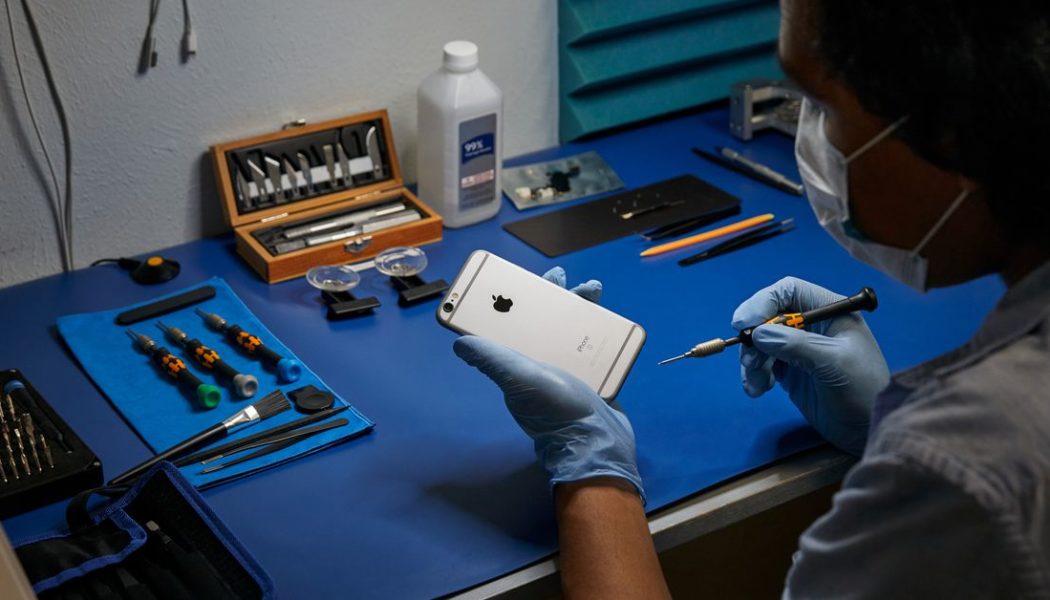
The Federal Trade Commission (FTC) has published its long-awaited report on how manufacturers limit product repairs. The “Nixing the Fix” report details a host of repair restrictions, especially those imposed by mobile phone and car manufacturers. The anticompetitive practices covered by the FTC range from limited availability of spare parts and diagnostic software to designs that make repairs more difficult than they need to be. In response, the FTC wants to develop new laws and rules surrounding repairs, but it also wants better enforcement of existing legislation like the Magnuson-Moss Warranty Act (MMWA).
While debates around right to repair rules in the EU have tended to focus on the environmental impact of sending broken devices to landfills, the FTC’s report leads with the impacts they have on people. It says repair restrictions are bad for consumers when they can’t easily repair their devices, and adds that these “may place a greater financial burden on communities of color and lower-income Americans.” Independent repair shops also suffer as a result of repair restrictions, “disproportionately [affecting] small businesses owned by people of color.”
The timing of the report is also important. Not only has it arrived during an unprecedented period of working from home and remote learning, where teleworking equipment is more important than ever, but it also coincides with a global semiconductor shortage that’s made buying new equipment particularly difficult. Combined, they make it particularly important to be able to repair our existing devices.
According to the FTC, manufacturers are guilty of using numerous tactics that make it difficult for customers and independent businesses to repair their products. Here’s the full list from the FTC’s report:
Product designs that complicate or prevent repair;
Unavailability of parts and repair information;
Designs that make independent repairs less safe;
Policies or statements that steer consumers to manufacturer repair networks;
Application of patent rights and enforcement of trademarks;
Disparagement of non-OEM parts and independent repair;
Software locks and firmware updates; or
End User License Agreements
Manufacturers have long argued that they have legitimate reasons for at least some of these restrictions. These include protecting their intellectual property, cybersecurity, and possible safety risks associated with independent repairers opening up our devices and replacing failed parts. But the FTC isn’t buying it. “There is scant evidence to support manufacturers’ justifications for repair restrictions,” the report states, adding that “the majority” of manufacturers’ explanations for repair restrictions “are not supported by the record.”
Apple, one of the companies most frequently criticized for its repair policies, has made moves to make spare parts and diagnostic tools more available to independent repair shops in recent years. But critics say the new policies still give the company too much power over independent businesses.
The CEO of repair specialists iFixit welcomed the FTC’s report. “This is a great step in the right direction,” said Kyle Wiens. “The bi-partisan report shows that FTC knows that the market has not regulated itself, and is committing to real action.”
With the findings submitted to Congress, the question now is how to make repairing devices easier. The FTC’s report makes several suggestions, including the introduction of new legislation to address repair restrictions and open repair markets. While it also encourages manufacturers to self-regulate, the FTC concedes that the broad range of industries and products involved would make that a challenge.
The FTC suggests consumers could be given more information on how repairable devices are, such as with repairability scores like those recently introduced in France. But the FTC also wants consumers to report when manufacturers aren’t obeying existing rules surrounding repairs, as described in an accompanying blog post:
Let’s say you took a product to an independent repair shop to fix or maintain it. Then later you go to the product’s manufacturer for a repair — but one not related to the earlier fix. If that repair is covered by your warranty, and if your warranty hasn’t expired, the manufacturer can’t refuse to make the repair.
If you’re told that your warranty was voided or that it will be voided because of independent repair, we want to hear about it. Report it to the FTC at ReportFraud.ftc.gov.
The FTC’s report follows efforts by several US states, as well as a European Parliament vote last year, to expand right to repair rules.










